The temperature has dropped suddenly, and winter is approaching, leading to an increase in the number of people catching colds. For a common cold, taking some “cold medicine” can alleviate symptoms, but the prerequisite is to take the right medicine, which depends on knowing whether you have a wind-cold or wind-heat cold.
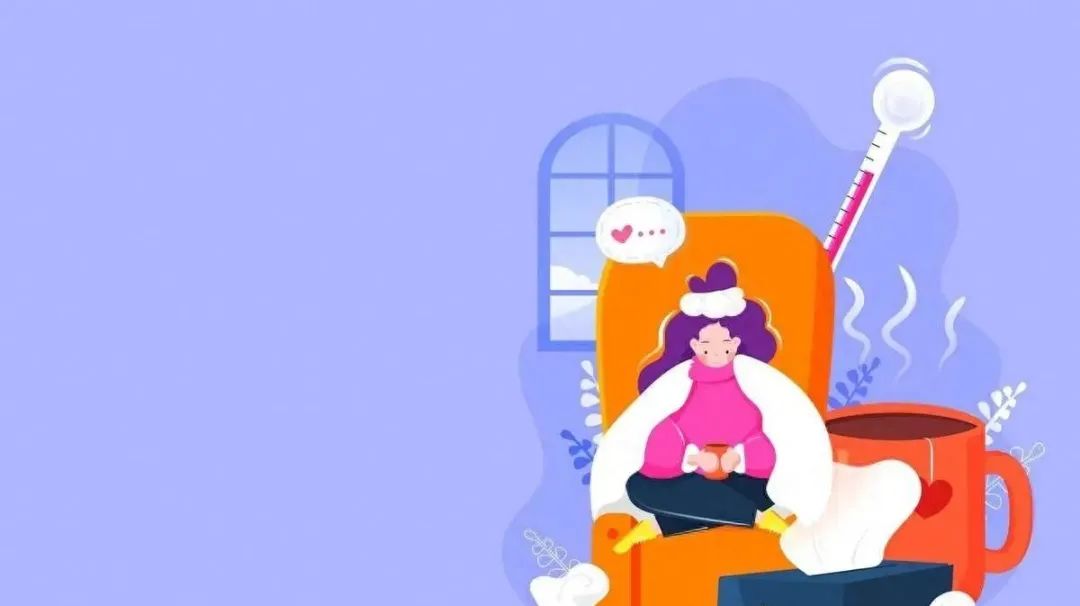
There are many Chinese patent medicines available for treating wind-heat colds, but there are relatively few for wind-cold colds. Today, I will introduce five types of Chinese patent medicines that can treat wind-cold colds.
First, let’s understand what a wind-cold cold is.
A wind-cold cold is primarily caused by the invasion of wind-cold evil qi, leading to the failure of lung qi to disperse. The first symptom is aversion to cold, which means being afraid of the cold. “For every bit of aversion to cold, there is a corresponding exterior syndrome.” If there is aversion to cold, it indicates that the evil qi is still on the surface of the body and has not transformed into heat; when the righteous and evil qi contend, fever may occur; if the evil qi stagnates on the muscle surface, it can lead to muscle soreness, headaches, body aches, lower back pain, and joint pain; if lung qi is obstructed, symptoms such as clear nasal discharge, sneezing, and even wheezing may appear; since the evil qi is on the surface, the pulse is relatively superficial, which is a floating pulse; the tongue coating is often thin and white. These are common symptoms of wind-cold colds. How do we differentiate between wind-cold and wind-heat colds?
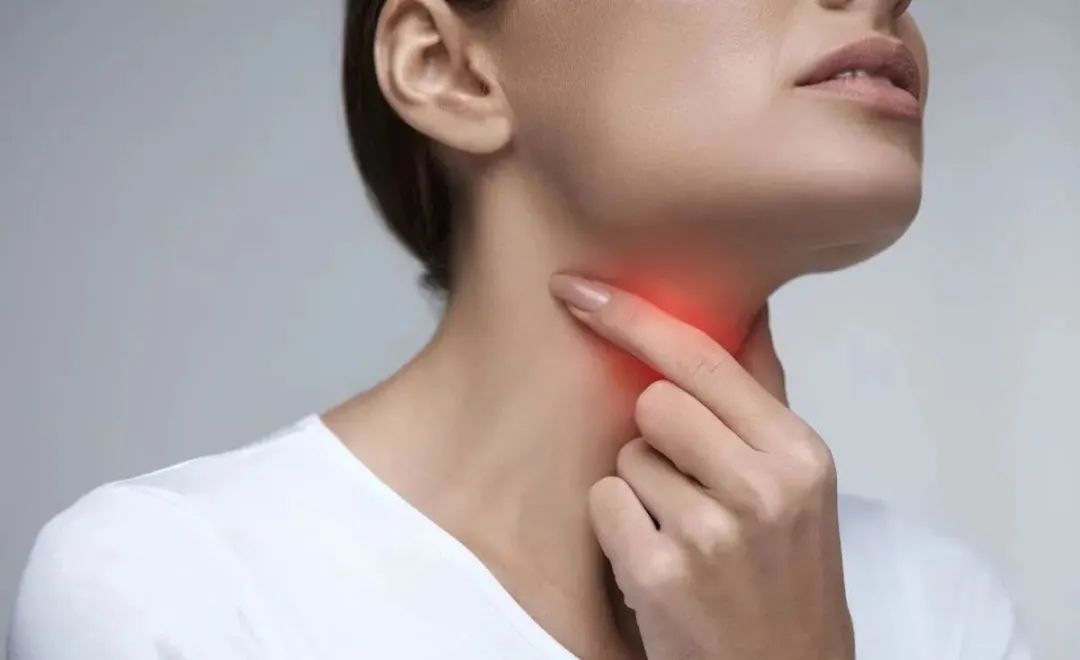
The simplest distinguishing point is to check if there is a sore throat. Why check for throat pain? Because the throat is the gateway of the Shaoyang, with the Taiyang on the surface and the Shaoyang being half exterior and half interior. Therefore, if throat pain occurs, it indicates that the evil qi has begun to enter the interior and transform into heat. Thus, if throat pain is present, it can be treated as a wind-heat cold, while wind-cold colds do not have throat pain.
Of course, in wind-heat colds, the heat symptoms will be more pronounced, such as fever, sore throat, yellow nasal discharge, and coughing up yellow phlegm. When these symptoms appear, it is a typical wind-heat cold, which is often combined with bacterial infection, while the essence of wind-cold colds is still a viral infection.
Now let’s discuss the treatment of wind-cold colds. Since the cold evil is on the surface, the treatment for wind-cold colds in Traditional Chinese Medicine (TCM) often starts with warming and dispersing the exterior, and dispersing cold from the lungs. Commonly used herbs include: 1) Ma Huang (Ephedra), Gui Zhi (Cinnamon Twig), Jing Jie (Schizonepeta), Fang Feng (Siler), Su Ye (Perilla Leaf), Dou Chi (Fermented Soybeans), Cong Bai (Scallion), and Sheng Jiang (Fresh Ginger) to disperse the exterior and expel cold; 2) Xing Ren (Apricot Kernel), Qian Hu (Hogfennel), Jie Geng (Platycodon), Gan Cao (Licorice), and Ju Hong (Tangerine Peel) to promote lung qi. Today, I will discuss how to choose from five commonly used Chinese patent medicines.
1. Jing Fang Granules
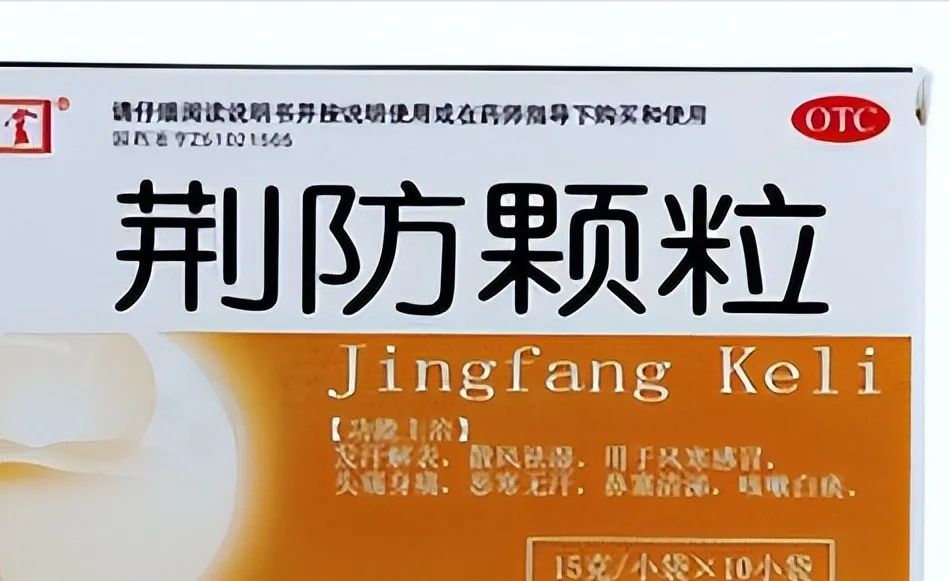
Composition: Jing Jie (Schizonepeta), Fang Feng (Siler), Qiang Huo (Notopterygium), Du Huo (Angelica), Chuan Xiong (Ligusticum), Chai Hu (Bupleurum), Qian Hu (Hogfennel), Jie Geng (Platycodon), Fu Ling (Poria), Zhi Ke (Bitter Orange), Gan Cao (Licorice);
Its efficacy is to disperse the exterior and expel cold, and to dispel wind and eliminate dampness. It is commonly used for colds caused by external wind-cold combined with dampness, with main clinical manifestations of headache and body pain, aversion to cold without sweating, nasal congestion with clear discharge, and coughing with white phlegm.
2. Wind-Cold Cold Granules
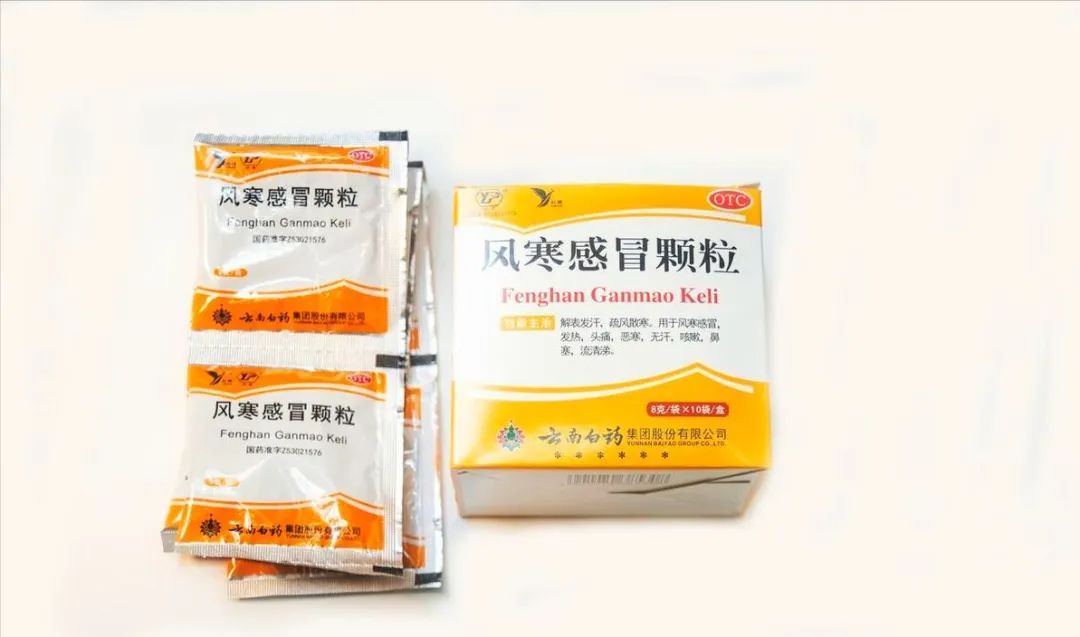
From the composition of Wind-Cold Cold Granules, it is essentially Ma Huang Tang (Ephedra Decoction) plus Zi Su Ye (Perilla Leaf), Bai Zhi (Angelica Dahurica), Fang Feng (Siler), Ge Gen (Kudzu Root), Chen Pi (Tangerine Peel), Jie Geng (Platycodon), and Gan Jiang (Dried Ginger). Ma Huang Tang disperses wind and releases the exterior, and this formula enhances the effects of relieving muscle aches and stopping cough.
The efficacy of Wind-Cold Cold Granules is to induce sweating and release the exterior, to disperse wind and expel cold, suitable for wind-cold cold syndrome, with clinical symptoms of aversion to cold, fever, no sweating, clear nasal discharge, headache, and cough. Wind-Cold Cold Granules can reduce fever and relieve pain, induce sweating, and alleviate discomfort caused by wind-cold colds, while also treating wind-cold cough.
3. Jiu Wei Qiang Huo Granules
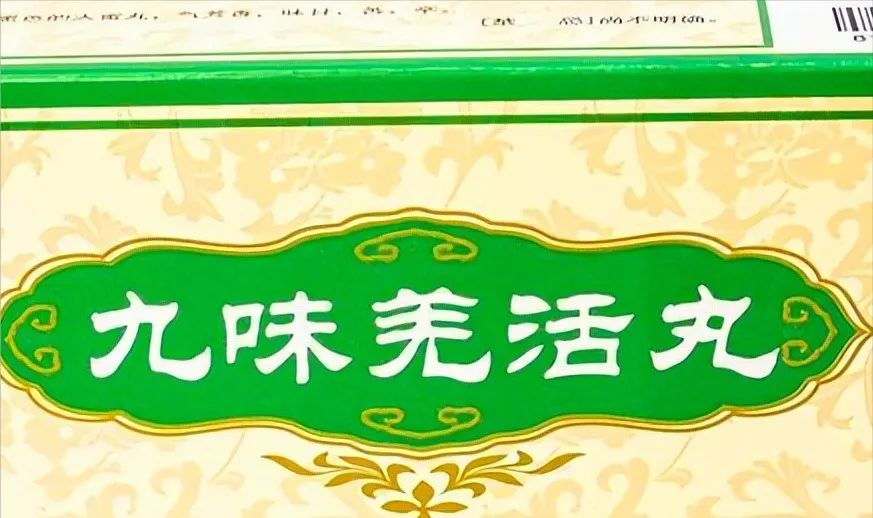
Jiu Wei Qiang Huo Granules consist of Qiang Huo (Notopterygium), Fang Feng (Siler), Cang Zhu (Atractylodes), Xi Xin (Asarum), Chuan Xiong (Ligusticum), Bai Zhi (Angelica Dahurica), Huang Qin (Scutellaria), Gan Cao (Licorice), and Di Huang (Rehmannia). Qiang Huo enters the Taiyang channel, dispelling wind-cold-damp evil on the surface and also relieving pain; Fang Feng and Cang Zhu dispel wind and eliminate dampness; Xi Xin, Bai Zhi, and Chuan Xiong dispel wind, expel cold, and relieve pain; Sheng Di and Huang Qin clear interior heat and prevent the drying and damaging effects of warming herbs on body fluids; Gan Cao harmonizes the other herbs.
Jiu Wei Qiang Huo Granules are a Chinese patent medicine for treating exterior wind-cold-damp evil with accompanying interior heat syndrome. Its efficacy is to dispel wind, expel cold, and eliminate dampness. When using it, attention should be paid to the patient’s symptoms, which may include heaviness and pain in the head, stiff neck, body aches, bitter mouth, and mild thirst, in addition to the characteristics of wind-cold colds.
4. Zheng Chai Hu Drink Granules
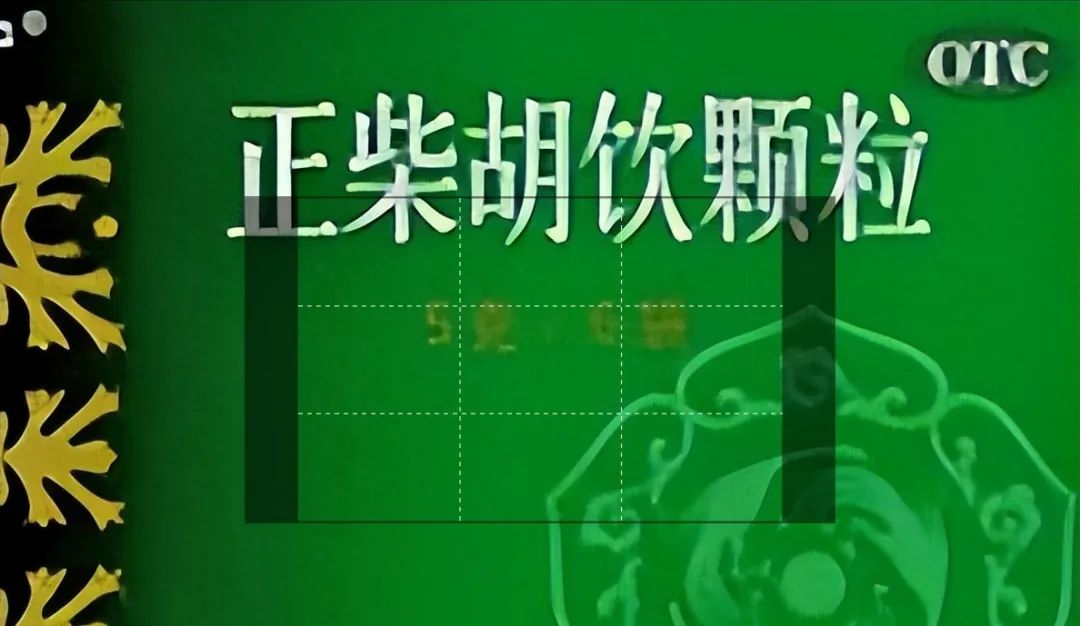
Zheng Chai Hu Drink Granules mainly include Chai Hu (Bupleurum), Chen Pi (Tangerine Peel), Fang Feng (Siler), Chi Shao (Red Peony), Gan Cao (Licorice), and Sheng Jiang (Fresh Ginger). In this formula, Chai Hu disperses and reduces fever; Fang Feng releases the exterior and disperses wind, relieving pain; Sheng Jiang induces sweating and releases the exterior, warming the lungs and stopping cough; Chi Shao clears heat and cools the blood; Chen Pi regulates qi and strengthens the spleen; Gan Cao harmonizes the other herbs.
Zheng Chai Hu Drink Granules have the efficacy of dispersing wind-cold and relieving heat and pain, mainly used for the initial stage of wind-cold invasion, with symptoms of fever, aversion to cold, no sweating, headache, nasal congestion, sneezing, itchy throat, and cough, as well as for patients with initial flu or mild upper respiratory infections showing these symptoms, primarily to help alleviate fever and pain.
5. Wushi Tea Granules
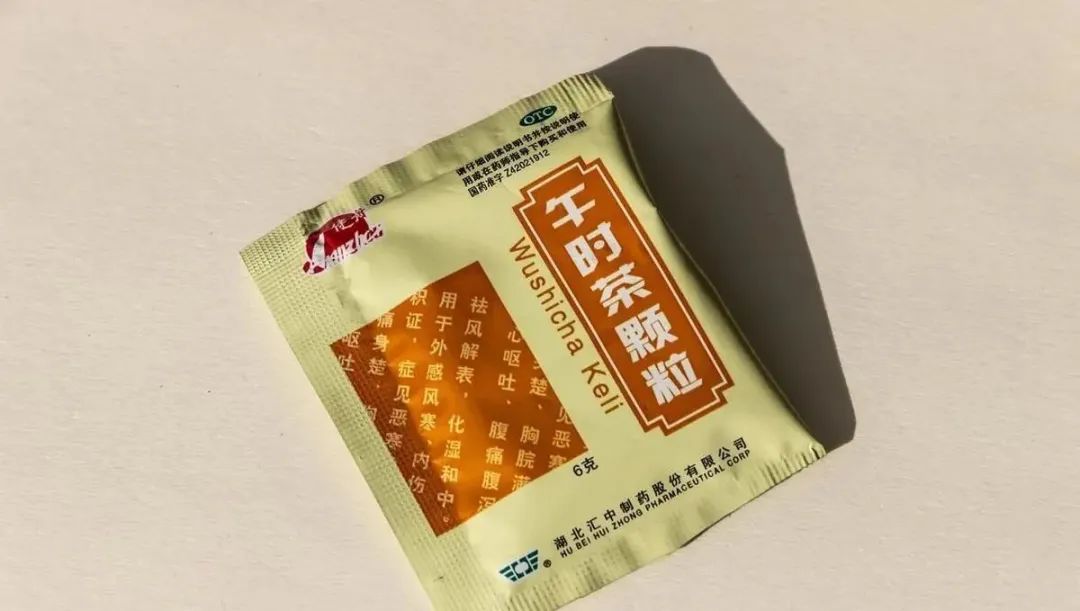
The main ingredients of Wushi Tea Granules are: black tea, Guang Huo Xiang (Patchouli), Qiang Huo (Notopterygium), Zi Su Ye (Perilla Leaf), Cang Zhu (Atractylodes), Lian Qiao (Forsythia), Hou Po (Magnolia Bark), Liu Shen Qu (Fried Fermented Rice), Shan Zha (Hawthorn), Mai Ya (Barley), Gan Cao (Licorice), Chai Hu (Bupleurum), Fang Feng (Siler), Bai Zhi (Angelica Dahurica), Chuan Xiong (Ligusticum), Qian Hu (Hogfennel), Chen Pi (Tangerine Peel), Zhi Shi (Bitter Orange), and Jie Geng (Platycodon).
Wushi Tea Granules have the efficacy of dispelling wind and releasing the exterior, transforming dampness and harmonizing the middle, mainly used for external wind-cold and internal food stagnation syndrome, with symptoms of aversion to cold, fever, headache, body aches, chest fullness, nausea, vomiting, abdominal pain, and diarrhea.
The focus of Wushi Tea’s formula is on three aspects: dampness, cold, and stagnation. If a child overeats or is exposed to cold and experiences abdominal pain, diarrhea, nausea, vomiting, or even low fever, Wushi Tea Granules should be a staple Chinese patent medicine.
In summary: The five types of Chinese patent medicines mentioned above can all treat wind-cold colds. If you usually have a strong constitution and suddenly catch a wind-cold, you can directly choose Wind-Cold Cold Granules; if gastrointestinal symptoms are more pronounced after feeling cold, indicating a tendency towards spleen deficiency or food stagnation, you can choose Wushi Tea Granules; if you usually have a spleen deficiency constitution with heavy dampness, you can choose Jing Fang Granules, Jiu Wei Qiang Huo Granules, or Zheng Chai Hu Drink. If the cold does not improve after a week, it may have transformed into an interior condition, and you should seek medical attention promptly to adjust the treatment plan.
Remember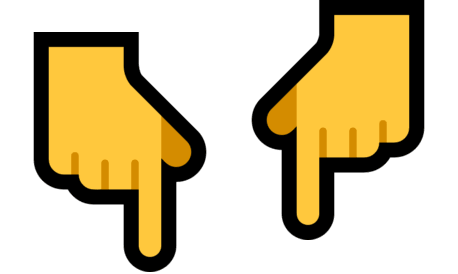 to follow!
to follow!
Editor’s Recommended Articles
1.For treating prostate hyperplasia, these 5 Western medicines and 5 Chinese patent medicines are essential to know
2. Insufficient liver blood ages you quickly; follow the spring season to nourish the liver with a Chinese patent medicine that nourishes, supplements, and regulates the liver
3. For urgency, pain, and urinary tract infections, 4 types of Chinese patent medicines clear heat, drain fire, and promote urination; recommended for collection
4. For insufficient cerebral blood supply, dizziness, and headaches, these 3 Western medicines and 3 Chinese patent medicines are essential to know
Like is a form of encouragement Share to spread joy

